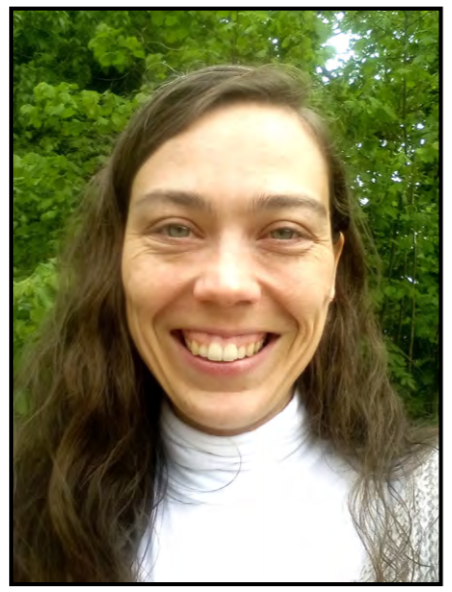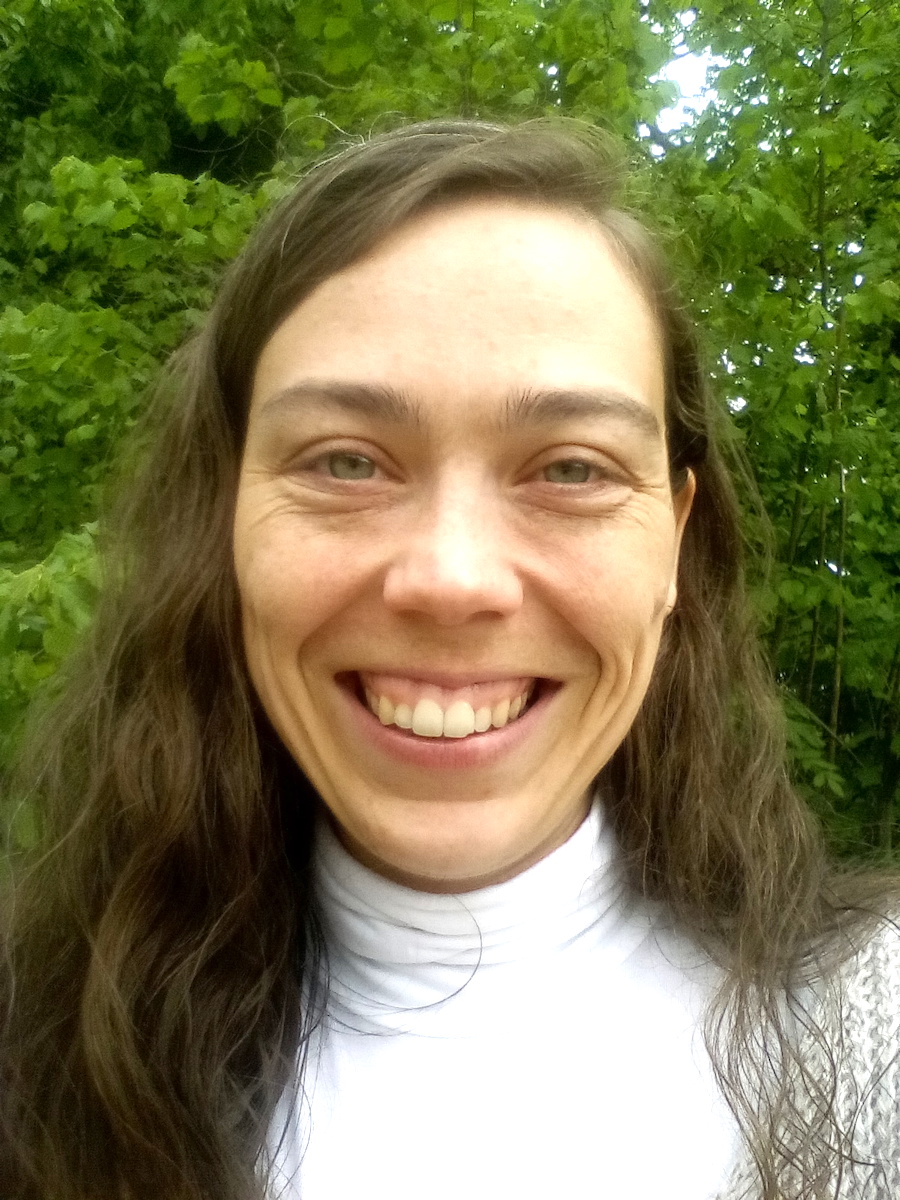By Lila Hartelius
“. . . Tu viens d’où?” (. . . Where are you from?)
This was not the first time I’d gotten the question.
“Près de San Francisco” (Near San Francisco.)
After the wave of initial excitement that predictably lit up my interlocutor’s face (does nobody in France know about the actual weather in San Francisco?) came the type of comment that, along with a feeling of pride it still stirs in me, evokes an additional layer of impatience each time it is uttered.
“Je m’attendais à ce que tu me dise de quelle région en France tu viennes! Tu as un très bon accent.” (I thought you were going to tell me which region of France you were from! You have a very good accent.)
“Merci. Ma mère est française.” (Thanks. My mom is French.)
***
I don’t remember what the weather was like that day, nor what I was wearing, but I remember feeling naked inside. My body walked slowly alongside my crush, while my mind fluttered somewhere above my head, wanting to believe this was all a dream. Telling your crush you like them is always easier in fantasies. You never stutter, your mouth never gets so dry you’d swear you just ate tahini, and your palms never get a combination of cold and clammy that renders any prior plots for surreptitious hand-holding obsolete.
“Oh, I thought you were a lesbian,” he said.
One half of me felt offended and the other elated. Somebody actually believes I am someone whose attraction to women should be taken seriously? Gosh, this feels so good maybe I am a lesbian! But I’m not, and how dare he pigeon-hole me! Both halves were bewildered: What in the world made him think I was a lesbian?
“Well, you’re involved in the Queer Student Union, so I just assumed . . .”
***
“Tu veux manger?” (You wanna eat?)
“No, speak normal to me, Mom!”
How much kid energy I put into trying to avoid the risk of my peers thinking I was “weird,” I don’t know. But if I put that energy into running today, I’d be marathon material in no time. Back then, in my eyes, having a mom with a French accent was about as big a threat to looking cool as was having a mom who broke into song in the supermarket (she was both). Being covertly invited to speak with her in the language which caused that then-embarrassing accent was akin to admitting I ate burnt oatmeal for breakfast and had bad breath and frizzy hair in the morning (which I often did).
Despite my desire to feel accepted, I never felt truly “American” under my skin. Sure, I ate pizza, saw the Rolling Stones in concert—twice (even got a Mick Jagger tongue t-shirt with the U.S. American flag printed on it)—gave friends of friends hugs two seconds after meeting them (Okay, maybe that’s just California) and, after a certain age, regularly used the expressions “dude” and “hella.” But growing up in a vegetarian family where Chinese tinctures were my Nyquil, cowboy hat and boot wearers like those we’d pass at the local Fourth of July fair were fodder for dinner table jokes, and a conversation with a grandparent always involved at least an accent if not a language barrier, it was pretty hard to ignore the feeling that I was a bit . . . different.
Being bisexual didn’t help. In fact, looking back, it’s hard to say how much of my sentiment that I was “weird” came from that and how much came from being a shy only-child in a multi-cultural family of first- and second-generation immigrants who neither ate hamburgers nor drank beer nor ever watched football. The two factors paralleled each other. Just like I’d never felt a sense of real belonging in the culture of the country I grew up in, I always knew I wasn’t like my female peers who constantly talked about boys (mainly because when they did I usually wanted to stare at them, which, I learned from an early age, tended to make them uncomfortable). Yet calling myself a lesbian would have felt as incongruous as saying I grew up in France.
***
Moving to France was in part a desperate attempt to assuage the feeling of being a misfit. Maybe in France I’ll finally feel like I belong. Uh, yeah . . . one word: cultural barriers. (Okay, two words.)
After six years, I still clam up when entering a room of people I know. Do I really have to go around and kiss all of them on both cheeks? Maybe I’ll just reciprocate when someone initiates. But then will the people who don’t initiate feel offended?
***
“Bonjour.”
The greeting came out as the man passed me on the sidewalk. Do I know him? Does he know me?
***
“Au-revoir.”
Her voice could have been that of a cashier asking if I wanted paper or plastic. I looked around. Other than the woman who’d just flung the two syllables through the air with the same routine nonchalance as her straight, charcoal hair around the heavy metal door as she left, I was the only person in the bank. The welcome desk lady had gone into a back office.
Actually, I don’t remember whether the lady was at the welcome desk or not, nor whether the woman flinging her voice around the door had charcoal hair, nor whether it was a woman at all. What I do remember is that strange things started happening. People I didn’t know started saying hello and good-bye to me in public places. If someone did that in San Francisco, I’d think they were either lost, drunk, hitting on me, or trying to steal my wallet.
Fortunately, I quickly learned that in France they were simply being polite. In fact, depending on circumstances, it can even be considered impolite to not greet someone. I’ve witnessed French mothers who seem to instill this particularly well in their children. It’s like “thank you” in the U.S.A.
“Qu’est-ce qu’on dit?” (What do we say?)
“Bonjour.”
I’ve even had individual children, wandering within eyesight of their parents at a festival or village gathering, surprise me with the greeting. They’ll be staring up at me like I’m an alien, and then, their eyes still locked on me, I can almost see their manners come back over their face, like an amateur shoved out onto stage who, after the shock has passed, suddenly remembers they have to perform.
***
Once, when I was travelling around Western Europe after college graduation (making up for the year I didn’t take off after high school), an October evening in Denmark had me trudging through cobblestone streets so narrow they would have been alleyways in the U.S.A., trying to follow a map (yes, a paper map—remember those?) to a lesbian bar.

With visions of my inner self tumbling out onto the floor of the place and rolling around yelping, “I’m home, I’m home!” going through my head, I tiptoed into a single, medium-sized room with one long bar and two short-haired women in leather jackets sitting at one end. The backpack whose straps, hugging my shoulders, betrayed my hostel-staying, baggy-jean-wearing culture suddenly came into sharp focus in my mind, becoming very purple and student-like. The women turned and stared at me with a stone look of, “We’ve never seen you before. You’re not from around here. What are you doing on our turf?” It was a look of muted bewilderment, mild wariness, and reserved curiosity.
I ordered sparkling water, drank the cold, aggressive bubbles that scratched at the back of my throat, tried to act like I wasn’t attempting to sneak glances toward the women at the other end of the counter, paid the bartender, and left.
***
As a bisexual, bicultural person, being “both” has often felt like being “neither here nor there.” And though being mistaken for one thing can feel gratifying (or not), it ultimately feels incomplete.
Convinced I would find my place in the world by moving to France, or by slipping into an LGBT bar, bookshop, or discussion group (as I’ve done so many times), what I have in fact found in each encounter with each moment of life is a kaleidoscopic mélange of divergences and points in common with those I interact with. At first, the divergences between another’s perspectives or experiences and my own propelled me deeper into feelings of hopeless despair and isolation. Shared interests or laughs would hype up my hopes of finding that feeling of perfect belonging I’ve yearned for, only to see them dashed by the first difference that reared its unnerving head.
Now, the pieces are starting to fall into place—exactly where they are. Camaraderie is pure sunshine. Differences, though still potentially stressful to encounter, sink me into the warm sand of my own turf—me—by letting me know where it is in relation to other individuals, cultures, identities, and values. What I’ve discovered is that, wherever I go, I’m exactly where I belong.
Lila Hartelius, BA, (lilahartelius.wordpress.com) is a bilingual (English/French) published writer and editor who has written funded grant and business proposals and served as editorial assistant for the International Journal of Transpersonal Psychology. Her work has been published in Bi Women Quarterly, Weird Sisters West and Tendrel (Naropa University’s diversity journal). With competencies in communication techniques and active learning pedagogy, she has been a workshop leader at EuroBiCon and has contributed to the efforts of Bennington College’s Queer Student Union, Naropa University’s GLBTQ student group, and Boulder Pride.

